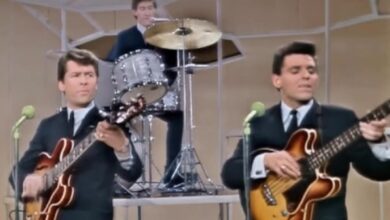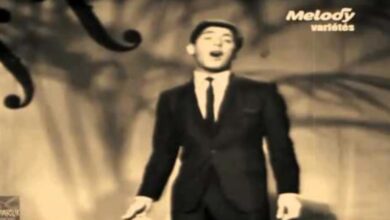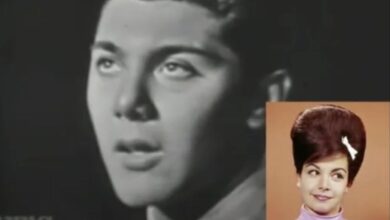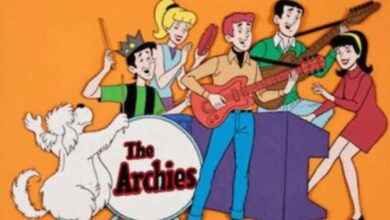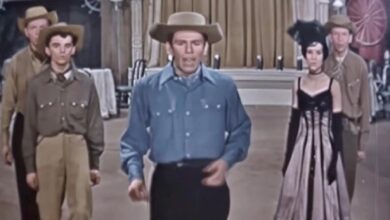Pain echoed in his voice; two months after this performance he passed, still roaring like an old lion
Johnny Cash’s final live performance on July 5, 2003, at the Carter Family Fold in Hiltons, Virginia, stands as a poignant testament to his enduring legacy in American music. Just two months before his passing, Cash, despite his frail health and recent loss of his beloved wife June Carter Cash, displayed remarkable resilience and dedication on stage. Accompanied by a small band including his son John Carter Cash, Jerry Hensley, and Bobby Starnes, Cash opened the concert with his iconic greeting, “Hello, I’m Johnny Cash,” a phrase that resonated deeply with his fans and underscored his legendary status.
The setlist for this historic performance was a journey through Cash’s most cherished songs, including classics like “Folsom Prison Blues,” “I Walk the Line,” “Ring of Fire,” and “Big River.” Each song carried with it the weight of Cash’s career, his voice, though weathered by age and illness, imbuing each lyric with profound emotion and experience.
One of the most touching moments of the evening came when Cash performed “Angel Band,” a song that had been sung by Emmylou Harris at June Carter Cash’s funeral. This rendition was a poignant tribute to his late wife, showcasing the deep personal loss Cash was grappling with. Additionally, Cash surprised the audience by performing “Understand Your Man,” a song he hadn’t sung in over 25 years. This unexpected choice added a layer of nostalgia and reflection to the concert, allowing Cash to revisit his musical journey and reflect on the passage of time.
Throughout the performance, Cash not only sang but also spoke candidly to the audience, sharing anecdotes and expressing his gratitude for their support throughout his career. His words were infused with a sense of humility and grace, despite the larger-than-life persona he had cultivated over decades in the spotlight.
Johnny Cash’s influence on American music extended far beyond his distinctive baritone voice and his ability to blend country, rock, and folk into a unique sound. He was a cultural icon, known for his rebellious spirit and his willingness to confront social issues through his music. Beyond his artistic achievements, Cash was also a humanitarian who advocated for prisoners’ rights and used his platform to raise awareness about social justice issues.
In the context of his final performance, Cash’s ability to connect with his audience on both a personal and universal level was on full display. His songs were not just performances but windows into his soul, revealing his joys, struggles, and deeply held beliefs. Despite the physical challenges he faced in his later years, Cash remained true to his artistry until the very end, delivering a performance that was raw, honest, and profoundly moving.
Johnny Cash passed away on September 12, 2003, leaving behind a rich musical legacy that continues to inspire generations of musicians and fans alike. His life and career are a testament to the transformative power of music and the enduring impact of an artist who remained true to himself and his beliefs. Cash’s final performance at the Carter Family Fold remains a poignant and fitting conclusion to a remarkable journey that began in the heart of Arkansas and resonated across the world stage, forever etching his name in the annals of American music history.
